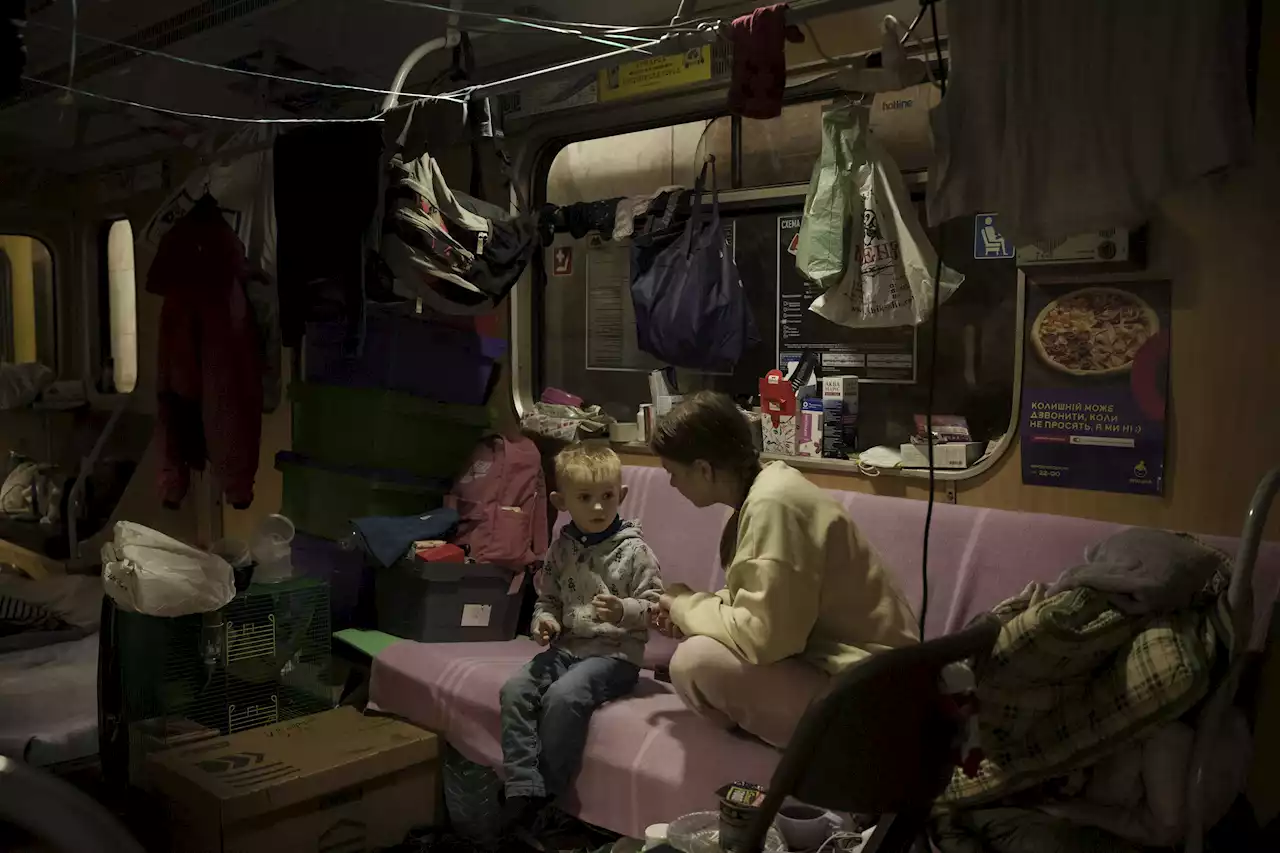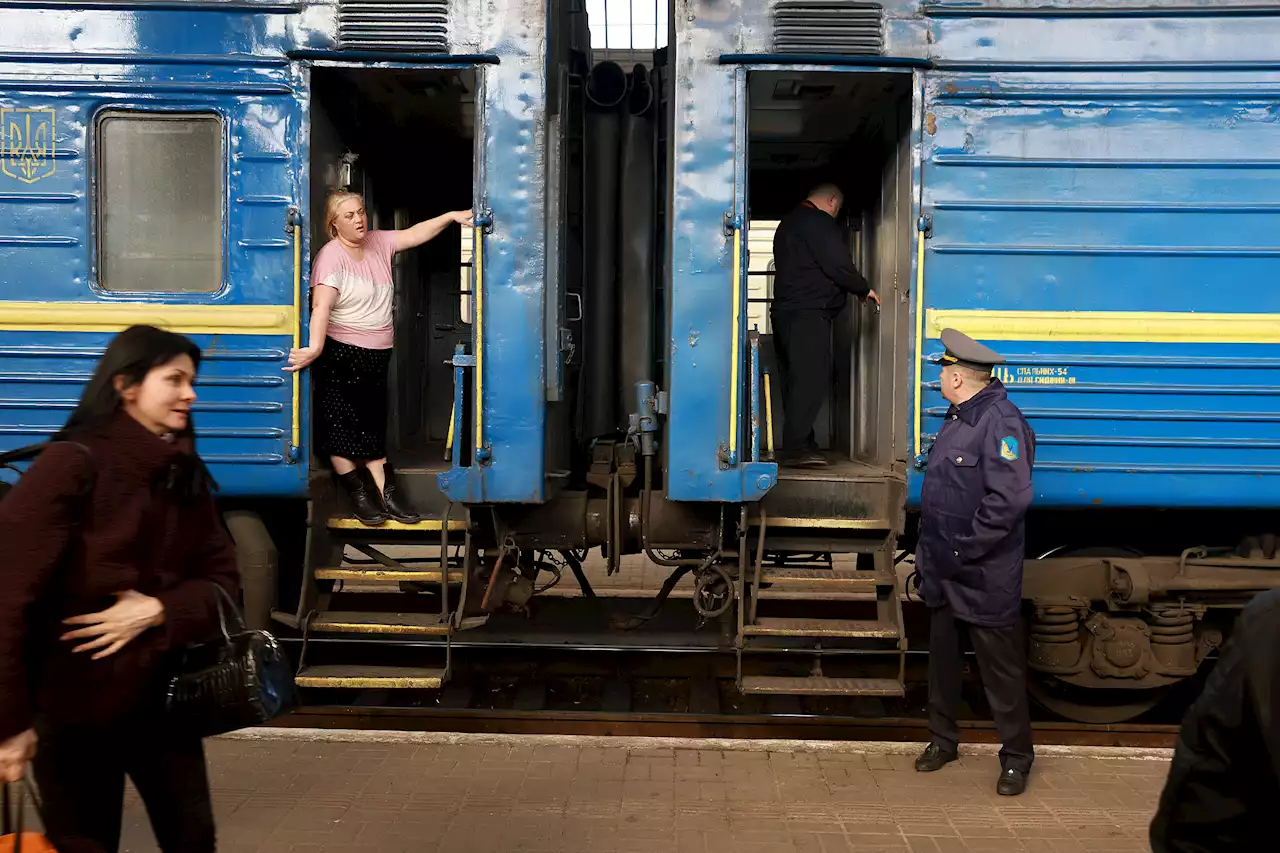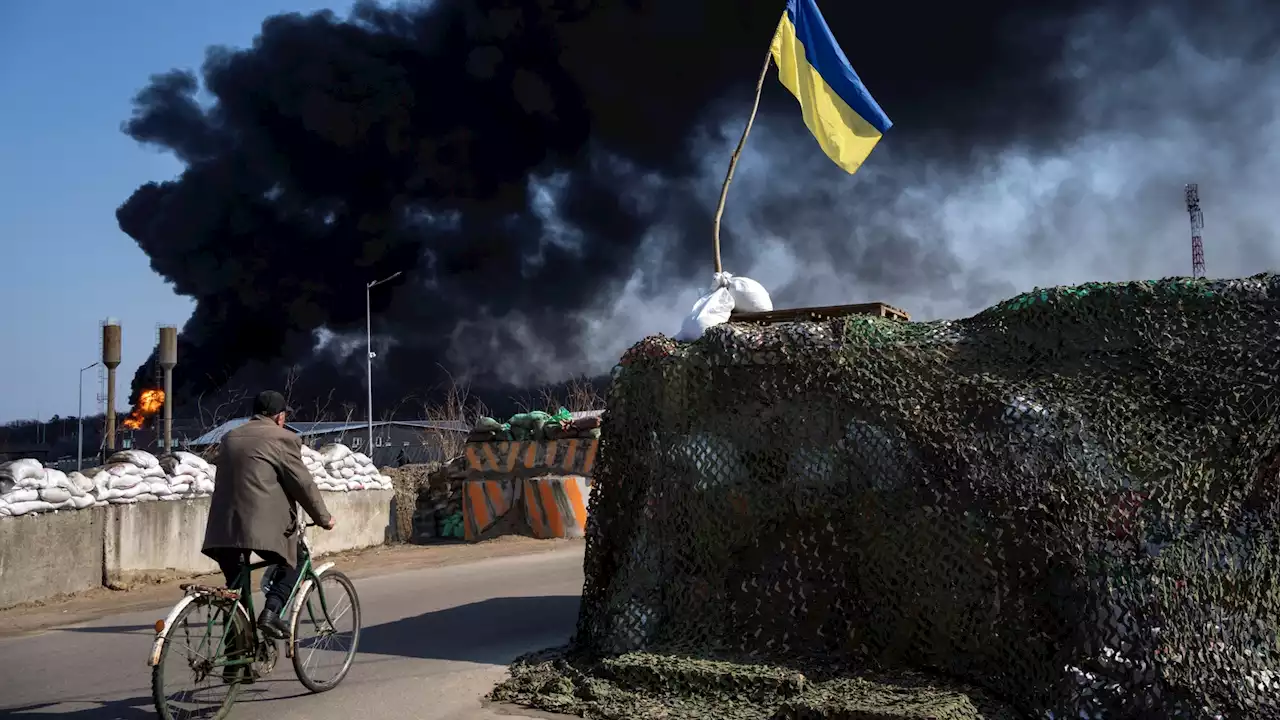“I have never, ever felt that breaking the silence was so important.” A team of AP journalists arrived in Mariupol on Feb. 24. By the time they left nearly three weeks later, the besieged Ukrainian port city lay in ruins.
A second child died, then a third. Ambulances stopped picking up the wounded because people couldn’t call them without a signal, and they couldn’t navigate the bombed-out streets.The doctors pleaded with us to film families bringing in their own dead and wounded, and let us use their dwindling generator power for our cameras. No one knows what’s going on in our city, they said.It shattered the windows of our van, blew a hole into its side and punctured a tire.
A shell exploded on the roof of the store, throwing me to the ground outside. I tensed, awaiting a second hit, and cursed myself a hundred times because my camera wasn’t on to record it. For several days, the only link we had to the outside world was through a satellite phone. And the only spot where that phone worked was out in the open, right next to a shell crater. I would sit down, make myself small and try to catch the connection.Every single day, there would be a rumor that the Ukrainian army was going to come to break through the siege. But no one came.By this time I had witnessed deaths at the hospital, corpses in the streets, dozens of bodies shoved into a mass grave.
We had recorded so many dead people and dead children, an endless line. I didn’t understand why he thought still more deaths could change anything.In the dark, we sent the images by lining up three mobile phones with the video file split into three parts to speed the process up. It took hours, well beyond curfew. The shelling continued, but the officers assigned to escort us through the city waited patiently.We went back to an empty hotel basement with an aquarium now filled with dead goldfish.
The message was constantly repeated, in Soviet style: Mariupol is surrounded. Surrender your weapons. It didn’t feel like a rescue. It felt like we were just being moved from one danger to another. By this time, nowhere in Mariupol was safe, and there was no relief. You could die at any moment.We crammed into a Hyundai with a family of three and pulled into a 5-kilometer-long traffic jam out of the city. Around 30,000 people made it out of Mariupol that day — so many that Russian soldiers had no time to look closely into cars with windows covered with flapping bits of plastic.
France Dernières Nouvelles, France Actualités
Similar News:Vous pouvez également lire des articles d'actualité similaires à celui-ci que nous avons collectés auprès d'autres sources d'information.
 AP Week in Pictures: GlobalMarch 19-25, 2022 From Canada's Madeline Schizas' graceful skating performance in the women's short program at the Figure Skating World Championships, in Montpellier, France, to Pope Francis' special prayer for Ukraine, and peace, amid the devastation of the Russian war, to the beauty of spring as a Japanese white-eye bird drinks the nectar of a cherry blossom in Tokyo, this photo gallery highlights some of the most compelling images from around the world made or published by The Associated Press in the past week.
AP Week in Pictures: GlobalMarch 19-25, 2022 From Canada's Madeline Schizas' graceful skating performance in the women's short program at the Figure Skating World Championships, in Montpellier, France, to Pope Francis' special prayer for Ukraine, and peace, amid the devastation of the Russian war, to the beauty of spring as a Japanese white-eye bird drinks the nectar of a cherry blossom in Tokyo, this photo gallery highlights some of the most compelling images from around the world made or published by The Associated Press in the past week.
Lire la suite »
 AP PHOTOS: Day 30: In Ukraine war, subway cars become homeAt first glance, the subway car into which a displaced Ukrainian family has moved looks like an apartment, its long seat covered with a light pink throw, a folding chair nearby converted into a small table on which a coffee cup filled with a beverage has been placed.
AP PHOTOS: Day 30: In Ukraine war, subway cars become homeAt first glance, the subway car into which a displaced Ukrainian family has moved looks like an apartment, its long seat covered with a light pink throw, a folding chair nearby converted into a small table on which a coffee cup filled with a beverage has been placed.
Lire la suite »
 A$AP Rocky Launches His New Whiskey Brand, Mercer + PrinceThe stylish rapper talks to Vogue about how he crafted his one-of-a-kind whiskey.
A$AP Rocky Launches His New Whiskey Brand, Mercer + PrinceThe stylish rapper talks to Vogue about how he crafted his one-of-a-kind whiskey.
Lire la suite »
 Russia-Ukraine war fails to fuel Biden approval rebound, AP-NORC poll findsOnly 43% of Americans approve of Biden and a similar percentage approve of his handling of the relationship with Russia, according to a new AP-NORC poll.
Russia-Ukraine war fails to fuel Biden approval rebound, AP-NORC poll findsOnly 43% of Americans approve of Biden and a similar percentage approve of his handling of the relationship with Russia, according to a new AP-NORC poll.
Lire la suite »
 Thousands of Ukrainians being forcibly transported into Russia: officialsMariupol City Council says 15,000 local residents have fallen under 'illegal deportation' to Russia.
Thousands of Ukrainians being forcibly transported into Russia: officialsMariupol City Council says 15,000 local residents have fallen under 'illegal deportation' to Russia.
Lire la suite »
 Ukraine says 300 died when Russia bombed Mariupol theater; hunger grips citiesAbout 300 people were killed in the Russian airstrike last week that blasted open a Mariupol theater, Ukrainian authorities said in what would make it the war's deadliest known attack on civilians yet.
Ukraine says 300 died when Russia bombed Mariupol theater; hunger grips citiesAbout 300 people were killed in the Russian airstrike last week that blasted open a Mariupol theater, Ukrainian authorities said in what would make it the war's deadliest known attack on civilians yet.
Lire la suite »
